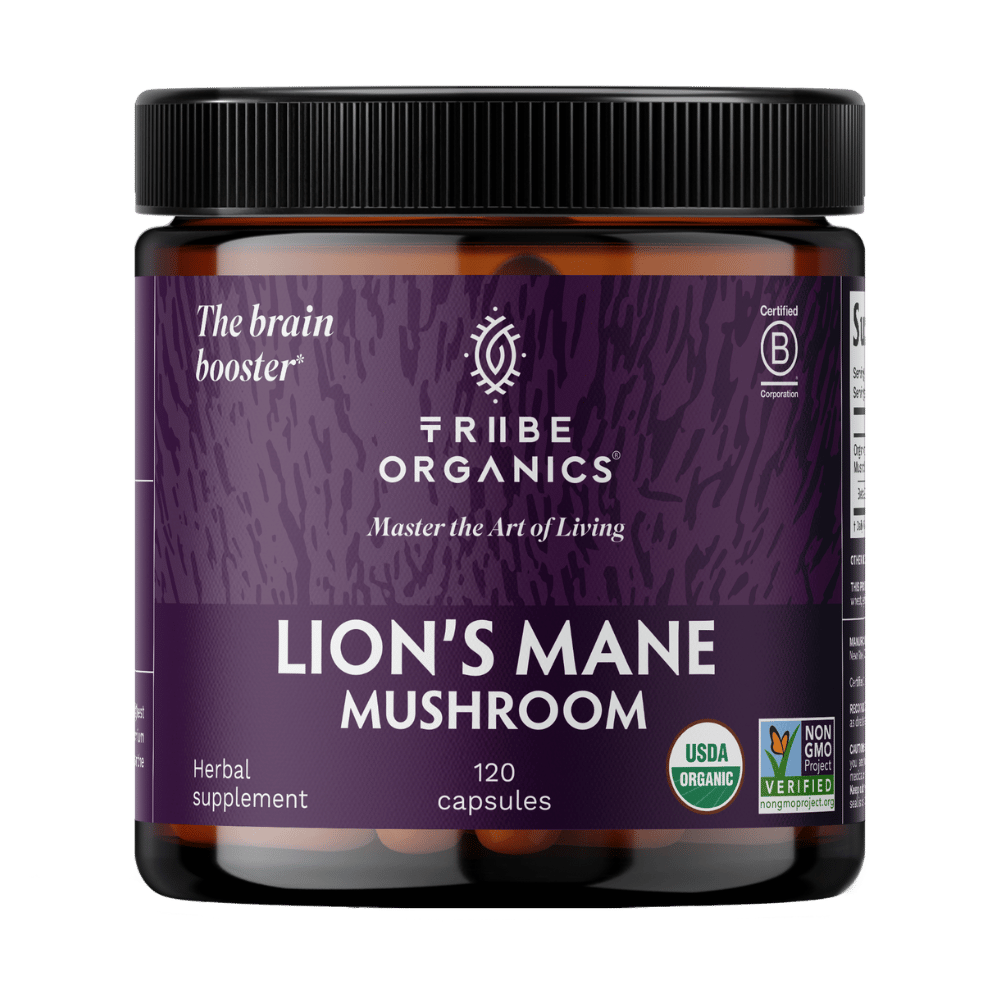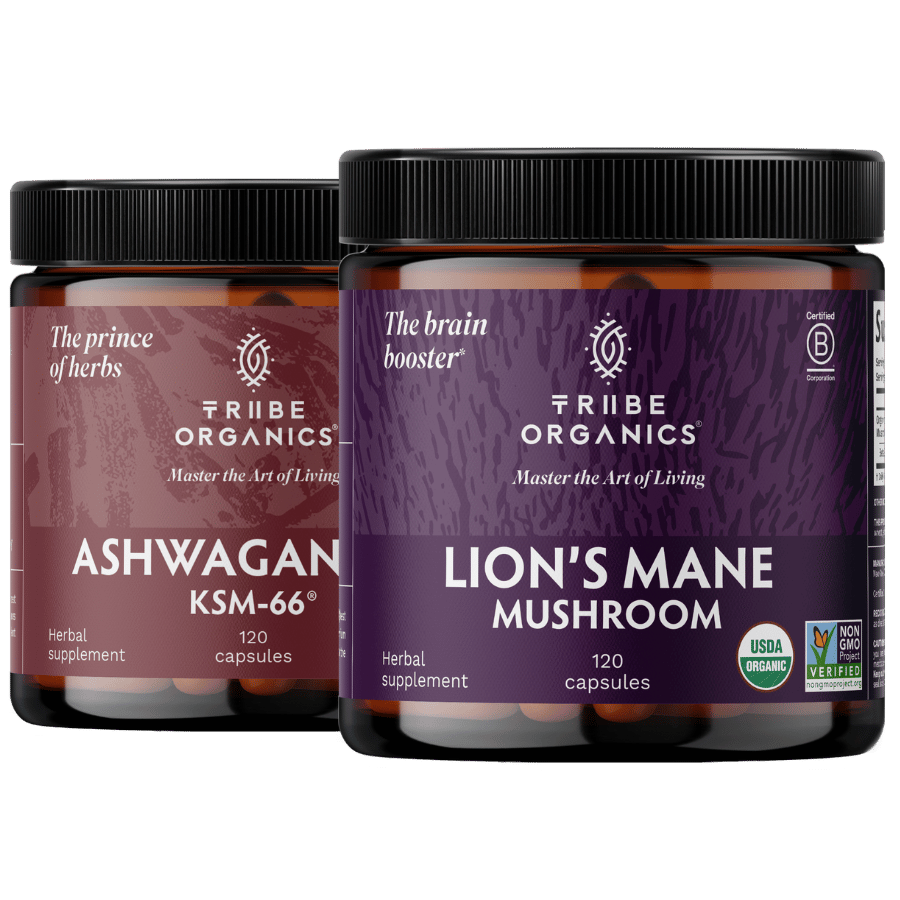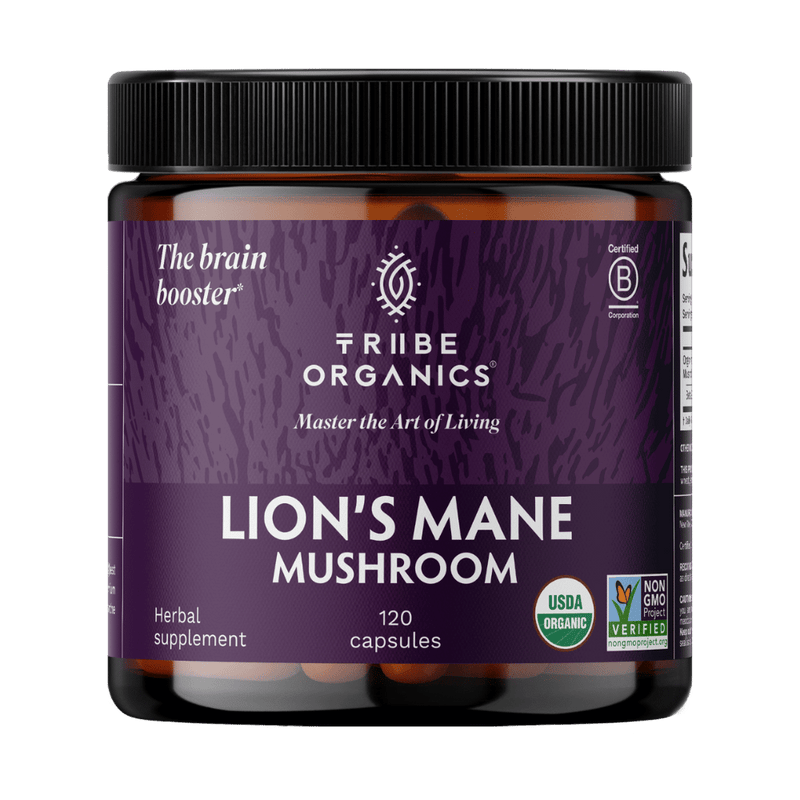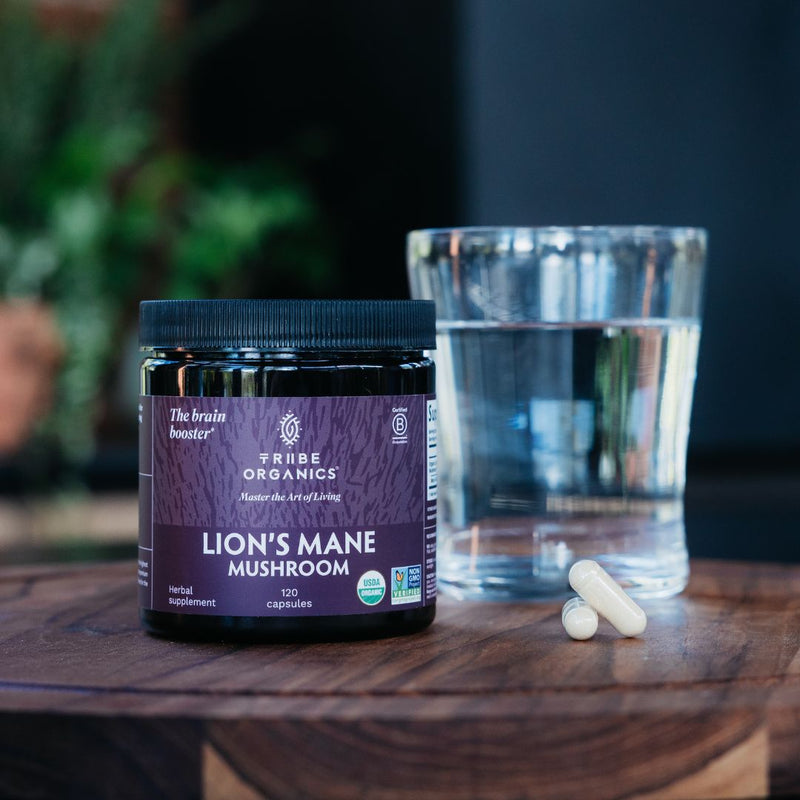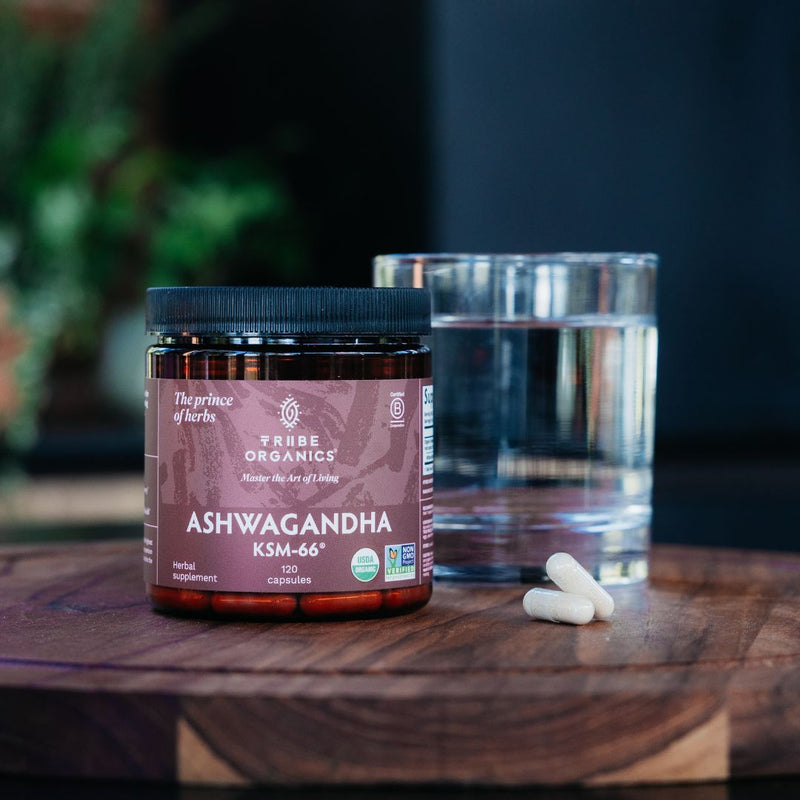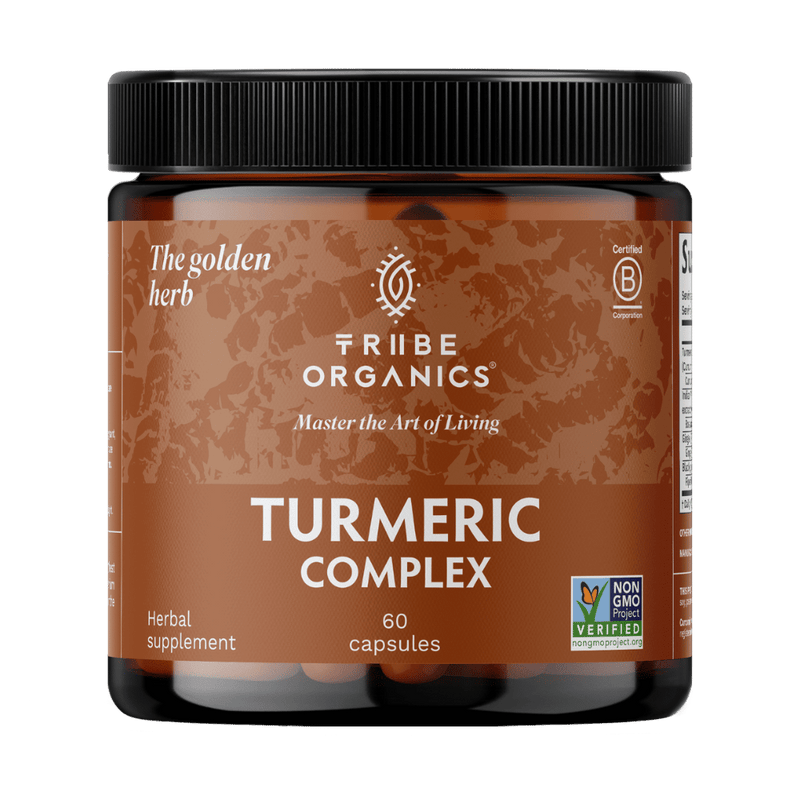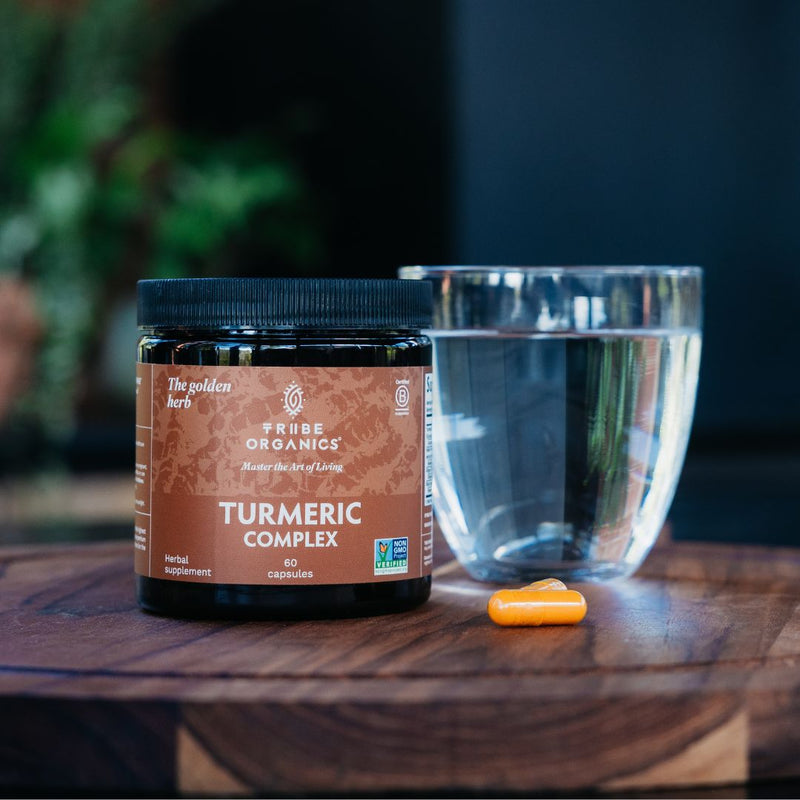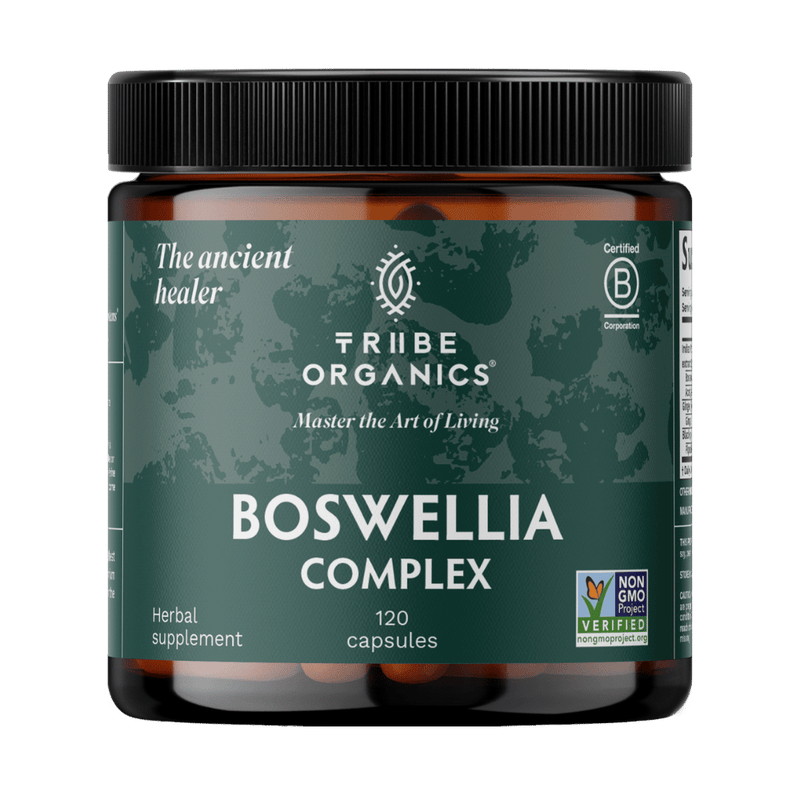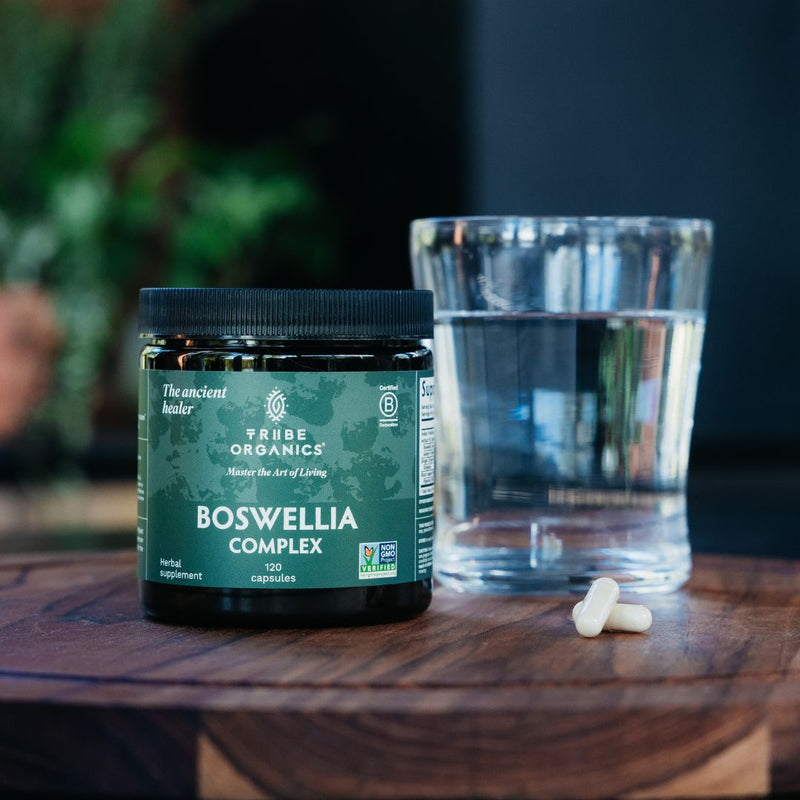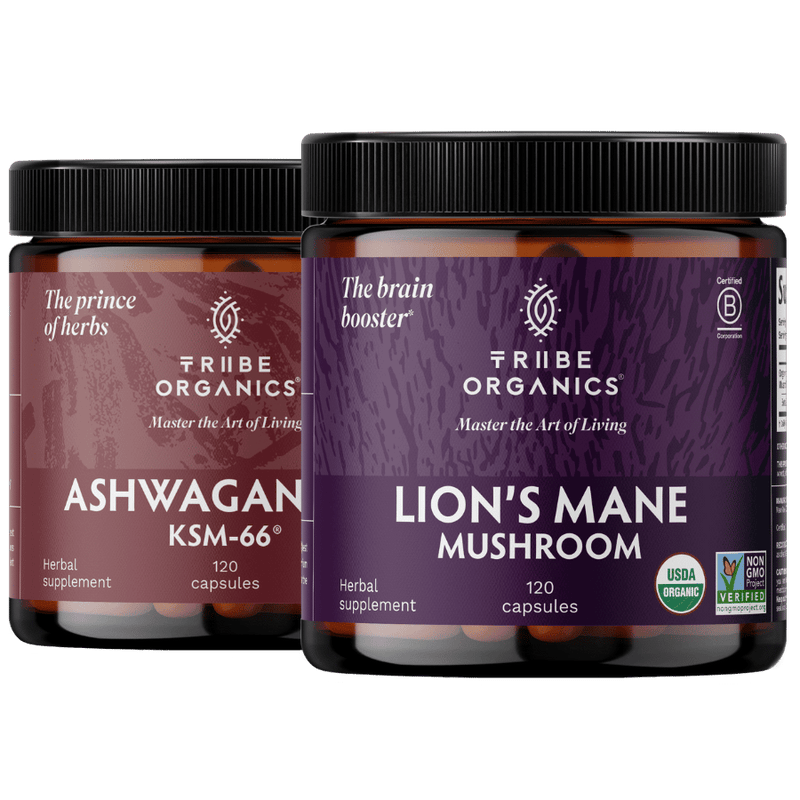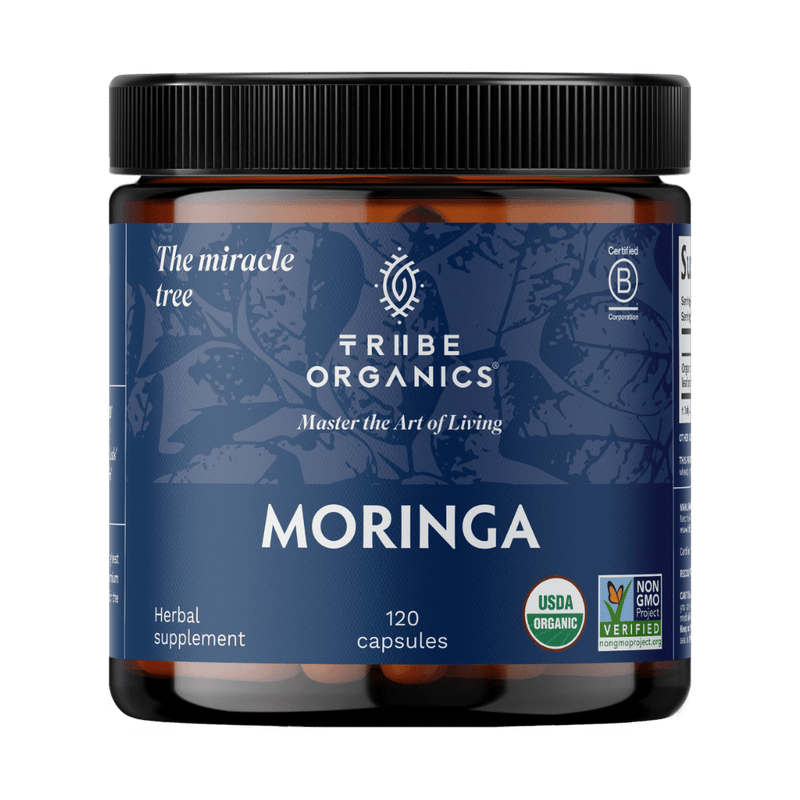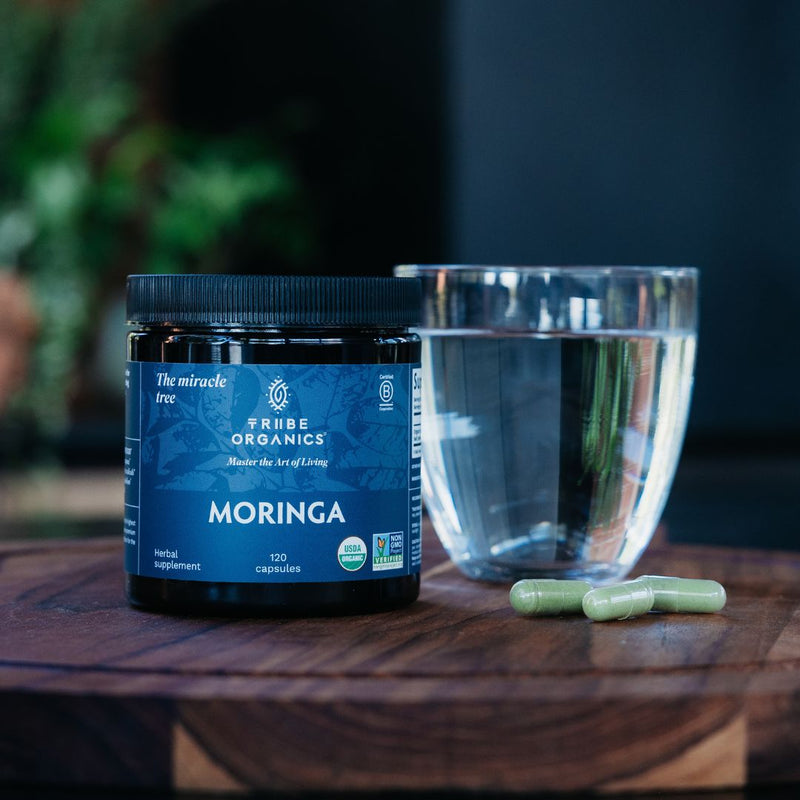Ancient herbal remedies and supplements are becoming increasingly popular today as a complement to modern medicine and healthcare treatments, or as a stand alone supplement alongside a healthy and balanced diet and lifestyle. For centuries, herbs, mushrooms, and other natural ingredients have been used to make medicinal treatments by people all around the world.
One such medicine that has been around since ancient times is Lion’s Mane. Lion's mane mushrooms (Hericium erinaceus) are a type of medicinal mushroom that has long been used in Traditional Chinese Medicine and in various traditional practices, and are now available in modern forms such as lion's mane supplements. Scientific research into Lions’ Mane has found that it has a number of health benefits for those who take it, including antioxidants.

What is Lion's Mane?
Also known as Yamabushitake, Lion’s Mane mushrooms are white mushrooms that get their name from the fact that as they grow, they look like the mane of a lion. The mushroom grows throughout Europe, Asia, and North America, usually on hardwood trees that are decaying. In China, Japan, India, and Korea, they have a range of both medicinal and culinary uses.
You can consume these mushrooms cooked, raw, eaten raw, dried, or in a tea, and their extracts are often found in a range of herbal health supplements that you can purchase over the counter. They have a seafood-like flavor which has often been compared to lobster or crab. The flavor profile makes them a versatile ingredient in various dishes.
Lion’s Mane mushrooms can be very beneficial for different parts of the body, particularly the heart, brain and gut, due to the bioactive substances that they contain—especially the brain. In Chinese medicine, lion’s mane has been used for centuries for a range of mind-affecting benefits such as helping to enhance memory and improving cognitive function.
So, how exactly could lion’s mane benefit your health?
Let’s discuss some of the many research-backed health benefits of this mushroom.
The Benefits of Lion's Mane:
Lion’s mane can be used in cooking, but it is primarily used as a medicinal substance, particularly in Asian countries. It is often used as a supplement, in a tea, or in meals for its brain-boosting benefits, including better memory and cognitive function. Lion’s mane is also increasingly popular in dietary supplements, where it is valued for its potential health and wellness benefits. However, that is not all that lion’s mane can help with if you are looking for a natural supplement to improve your health. Some of the main health benefits of lion’s mane to consider include: Additionally, lion’s mane mushrooms can be incorporated into dishes like risotto, pasta, or soup, adding both flavor and potential health benefits.
1. Lion's Mane Against Depression and Anxiety:
Recent studies show that lion’s mane has some anti-inflammatory effects that can help to reduce mild symptoms of depression and anxiety, including depressive behaviors as observed in animal and small human studies. Further research has shown that this mushroom may be effective in the regeneration of brain cells and can be useful in improving hippocampus health and function, which is the part of the brain that is responsible for emotional responses and processing memories. Researchers believe that the fact lion’s mane can lead to improved hippocampus health and function is the reason why it can help to reduce anxious and depressive behavior. A study of menopausal women found that eating cookies that contained lion’s mane mushrooms on a daily basis led to reduced feelings of anxiety and irritation, as well as improvements in anxious and depressive behaviors as reported in research.
2. Lion's Mane and Protection Against Dementia:
As we age, cognitive decline often occurs and mental functioning worsens, largely because the brain’s ability to grow and form new connections typically decreases over time. Studies have found that lion’s mane mushrooms contain erinacines and hericenones; two compounds that can stimulate the growth of brain cells. In addition, further animal studies have found that lion’s mane may be effective in protecting against Alzheimer’s disease, a degenerative brain disease where the main symptom is progressive memory loss.
Although there have not yet been any studies that point to whether or not lion’s mane is effective for protecting against dementia or Alzheimer’s disease in humans, the animal studies do suggest that it appears to be brain-boosting and may help slow cognitive decline and improve mental functioning.
One study in older adults, including individuals with mild Alzheimer's disease, found that consuming three grams of powdered lion’s mane on a daily basis for a four-month period significantly improved mental functioning. However, these benefits stopped with the supplementation, suggesting that it needs to be ongoing for the benefits to be seen. Lion’s mane’s ability to protect the brain from Alzheimer’s-related damage and promote nerve growth could explain some of the benefits that it has on brain health.
3. Lion's Mane and Protection Against Cancer:
Preliminary studies have provided positive results to suggest that lion’s mane could offer some protection against cancer. These studies highlight the anti cancer properties of lion’s mane, including its potential to inhibit cancer cell growth and reduce metastasis.
A 2011 study that was published in Food & Function tested human cancer cells to reveal that lion’s mane could be effective in killing cancer cells and reducing or even getting rid of leukemia cells in the body. Another study carried out in 2011 found that lion’s mane extract was effective in decreasing the size of malignant colon tumors in mice, demonstrating its role in slowing tumor growth. The findings of this study suggested that lion’s mane might be an effective treatment for reducing colon cancer tumors, by increasing the activity in certain cells that are involved in the immune response. In addition, further studies suggest that lion’s mane extract might be effective in reducing the spread of colon cancer cells to the lungs.
However, it is worth bearing in mind that these studies have been conducted on animals, and human trials are necessary to come to a definitive conclusion about whether or not lion’s mane can help to reduce or prevent cancer in humans.
4. Lion's Mane and Recovery from Nervous System Injuries:
Your nervous system is made up of your brain, spinal cord, and other nerves that travel through the body. Together, they work to send and transmit signals that control all of your bodily functions. Because of this, any injuries to the brain or spinal cord can be devastating and life-changing; they might often lead to a loss of mental functions or paralysis and can take a long time to heal or in some cases lead to irreversible damage.
However, some studies of lion’s mane have found that this mushroom might be effective in speeding up the recovery time of these types of injuries since it can stimulate nerve cell growth and repair, and may even help to regenerate brain cells.
When given to rats with nervous system injuries, lion’s mane has been shown to reduce the recovery time by 23-41%. Further studies suggest that it might also be effective in reducing the severity of brain damage that is experienced after a stroke. When given to rats immediately after a stroke, Lion’s Mane helped to decrease inflammation in the brain and reduced the size of related injury in the brain by over 40%.
But once again, although these results are hopeful, there have not yet been any studies conducted in humans to determine if the mushroom would have the same effect on human nervous system injuries.
5. Lion's Mane and Reduced Risk of Heart Disease:
There are several risk factors for heart disease including large amounts of oxidized cholesterol, obesity, high triglycerides, and an increased tendency of developing blood clots. Research has been conducted into lion’s mane that suggests the extract can influence some of these risk factors and lead to a reduced risk of heart disease.
Studies conducted on rats and mice found that lion’s mane can be effective in lowering triglyceride levels and improving fat metabolism. A study of rats that were given a diet high in fat and subsequently given daily doses of lion’s mane found that their triglyceride levels were lowered to 27% and they gained over 40% less weight after a period of 28 days.
Further studies in test-tubes have produced results that suggest that lion’s mane extract may also help to prevent the oxidation of cholesterol in the bloodstream, further reducing the risk of heart disease. This is important because oxidized cholesterol molecules tend to attach to artery walls, which leads to them hardening and increases the risk of both stroke and heart attack.
Lion’s Mane mushrooms have also been found to contain a compound known as hericenone B, which can lower the risk of blood clots and further decrease the risk of suffering a stroke or heart attack.
6. Lion's Mane and Reduced Inflammation and Oxidative Stress:
Oxidative stress and chronic inflammation are believed to be at the center of many modern illnesses, including autoimmune disorders, cancer, and heart disease. Research has found that lion’s mane contains powerful antioxidant and anti-inflammatory compounds, including several bioactive compounds that work together to reduce the impact of these conditions.
One study that examined the antioxidant benefits of fourteen different species of mushroom found that lion’s mane has the fourth-highest antioxidant activity and recommended it as a sound dietary antioxidant source. In addition, there have been several animal studies which found that rodents given lion’s mane extract had reduced markers or inflammation and oxidative stress, making it especially useful in the management of stroke, liver damage, or inflammatory bowel disease. Since lion’s mane has been shown to reduce the amount of inflammation that is released by fat tissue, they may also be effective in reducing some of the health risks that are commonly associated with obesity.
7. Lion's Mane and Immune System Improvement:
A strong immune system is essential for protecting the body from viruses, bacteria, and other pathogens that cause disease. A weak immune system puts your body at a higher risk of developing a range of infectious diseases, as a weak immune system can make you more susceptible to illness and reduce your ability to fight off pathogens.
Animal research has found that lion’s mane mushroom can improve immunity by increasing intestinal immune system activity, which protects the body from pathogens that enter the gut through the nose or mouth. Research suggests that these effects may be in part down to beneficial changes in the gut bacteria that stimulate the immune system. One study found that giving a lion’s mane extract supplement on a daily basis expanded the lifespan of mice that had been injected with a lethal dose of salmonella by almost four times.
Additionally, some research suggests that lion’s mane may also help with sleep disorders due to its effects on brain and immune health.
8. Lion's Mane and Management of Diabetes Symptoms:
Diabetes is a disease that occurs when the body no longer has the ability to control blood sugar levels correctly, which leads to consistently elevated blood sugar levels as a result. These chronically high blood sugar levels can often lead to a range of complications such as vision loss, nerve damage to the hands and feet, and kidney disease.
Research has suggested that lion’s mane mushroom may be beneficial for managing diabetes by improving the control of blood sugar in the body and reducing some of the side effects of the condition. There have been several animal studies conducted that have shown that lion’s mane can lead to significantly lower blood sugar levels in diabetic mice, even when given a low daily dose.
One of the ways that lion’s mane is effective in reducing blood sugar levels is by blocking the activity of the alpha-glucosidase enzyme, which breaks down carbohydrates in the small intestine. When this enzyme is blocked, the body will no longer be able to digest and absorb carbohydrates as efficiently, which can lead to lower blood sugar levels.
Studies have also found that lion’s mane may also be effective in reducing diabetic nerve pain in the feet and hands. Mice with diabetic nerve damage were given daily extracts of lion’s mane for a six-week period, which lowered the blood sugar levels, decreased pain levels significantly, and increased levels of antioxidants. In these animal studies, treatment with lion’s mane extract significantly reduced symptoms associated with diabetic nerve pain.
9. Lion's Mane and Digestive Tract Ulcer Protection:
Ulcers can be formed anywhere along the digestive tract, including the small and large intestine and the stomach. Stomach ulcers are usually the result of two major factors: damage to the mucous layer of the stomach and overgrowth of a bacteria known as H. pylori. Damage to the stomach’s mucous layer can often be the result of long-term use of nonsteroidal anti inflammatory drugs such as ibuprofen.
Studies have suggested that lion's mane extracts could be an effective supplement taken to prevent the development of stomach ulcers by reducing H. pylori growth and offering extra protection to the stomach lining against damage.
There have been several test-tube studies that have shown the effectiveness of lion's mane extracts against preventing the growth of H. pylori, but it’s worth noting that there have not yet been any studies to show whether or not it will have the same effects inside the stomach. In addition, one animal study found that lion's mane extracts were effective at preventing alcohol induced stomach ulcers without any side effects compared to other treatments.
It has also been found to be effective at reducing inflammation and preventing damage to the tissues in other areas of the intestines, making it a treatment worth considering for inflammatory bowel diseases. One human study of people with ulcerative colitis found that taking a mushroom supplement that contained 14% lion's mane on a daily basis significantly improved symptoms and quality of life after just three weeks compared to the placebo group. However, lion's mane did not have the same effect on patients with Crohn’s disease.
Additional Benefits of Lion's Mane:
In addition to the above, there have been further studies to suggest that lion’s mane can be effective in reducing the risk of Parkinson’s disease, and can reduce high cholesterol in the body. Along with being an effective supplement to take for improved cognitive function, memory and mental health, lion’s mane has been shown to improve several risk factors for serious diseases such as stroke, cancer, and heart disease.
However, it is worth bearing in mind that much of the current evidence comes from lab and animal studies, and more human studies are needed to determine whether or not the supplement will have the same positive effects in humans.
Acute and Chronic Effects of Lion’s Mane Consumption
Lion’s mane mushroom is renowned for its wide-ranging health benefits, which can be experienced both in the short term and with regular, long-term use. When consumed acutely, lion’s mane may offer noticeable improvements in focus, mental clarity, and mood, making it a popular choice for those seeking a natural boost in cognitive function. Many users report feeling more alert and mentally sharp after taking lion’s mane extract, thanks in part to its ability to support nerve growth factor (NGF) synthesis—a key protein involved in the maintenance and regeneration of brain cells.
With chronic consumption, the benefits of lion’s mane become even more pronounced. Regular intake has been linked to a reduced risk of cognitive impairment, including conditions like mild cognitive impairment and even Alzheimer’s disease. This is largely due to lion’s mane’s unique bioactive compounds, which help stimulate NGF production and support overall cognitive health. Additionally, lion’s mane mushrooms are known for their anti-inflammatory effects, which can help combat chronic inflammation—a major contributing factor to many modern health issues. Over time, these anti-inflammatory properties may contribute to improved immune system function and a lower risk of developing chronic diseases.
Whether you’re looking for a quick mental boost or long-term support for brain health and inflammation, incorporating lion’s mane mushroom into your routine can offer a range of acute and chronic health benefits.

How to Take Lion's Mane:
Lion’s mane is available to take in a range of different forms. It is most commonly dried and turns into a dietary supplement, but it can also be consumed as a lion's mane supplement or lion's mane supplements in capsule or powder form, in its whole form, or steeped in a tea. There is no recommended serving size for lion’s mane since dosages will vary depending on why you are taking it. Most experts will recommend taking lion's mane once or twice daily, although this can vary depending on how you are taking the supplement and what you are taking it for.
If you are taking lion’s mane for increased cognitive functions, 3-5mg per day of lion's mane extract is considered to be safe and effective. For increasing Neural Growth Factor production, studies have also shown 3-5mg per day of lion's mane extract daily to be effective. 2.0g per day of lion’s mane over a period of four weeks has been found to be safe and effective for those looking to reduce the symptoms of anxiety, depression or stress.
Consuming lion's mane mushrooms daily may offer potential benefits for brain health, nerve regeneration, and overall wellness.
Lion’s Mane Supplement Options
Lion’s mane supplements come in a variety of convenient forms, making it easy to incorporate this powerful medicinal mushroom into your daily wellness routine. The most popular options include lion’s mane extract capsules, lion’s mane mushroom powder, and tinctures. Some products also blend lion’s mane with other medicinal mushrooms to provide a broader spectrum of health benefits.
When choosing a lion’s mane supplement, quality is key. Similarly, when selecting a moringa supplement, look for products made from high-quality, organic lion’s mane mushrooms, ideally using the fruiting body rather than just the mycelium, as this part of the mushroom contains the highest concentration of beneficial bioactive compounds. Reputable brands will provide third-party testing and clear labeling of their ingredients and potency. Lion's mane extracts are generally made by either grinding the fruiting body or mycelium of the mushroom, so understanding the source can help in selecting the best product.
Lion’s mane mushroom powder is a versatile option that can be added to smoothies, coffee, or recipes, while capsules offer a convenient, pre-measured dose for those on the go. If you’re interested in a more comprehensive approach, consider supplements that combine lion’s mane with other medicinal mushrooms, such as reishi or chaga, for enhanced immune and cognitive support.
As with any dietary supplement, it’s important to follow the recommended dosage and consult with a healthcare professional before starting lion’s mane, especially if you have underlying health conditions or are taking other medications.
Potential Side Effects of Lion's Mane:
Lion's Mane is recognized as a safe dietary supplement that is typically well-tolerated by the body. There have been several studies that have found it to be a non-toxic supplement and food source. One study tested the toxicity of lion's mane by analysis of an aqueous solution containing lion's mane extract, which indicated a lack of cytotoxicity. There have been various clinical trials that found lion's mane to have no toxic side effects in rats, even when given at high doses. No significant side effects have been reported in studies involving high doses of lion's mane mushrooms in animal models, further supporting its safety profile.
However, it is worth considering that individuals who have mushroom allergies might experience some side effects of lion's mane. There have been some isolated instances where some individuals have reported experiencing side effects, including one man who had an allergic reaction with acute respiratory failure while taking the supplement for four months. In another case, a male reported contact dermatitis as a result of occupational exposure to lion's mane, which cleared up after the contact with the mushroom ceased. Lion's mane mushroom is generally considered safe for consumption, but individuals with mushroom allergies or sensitivities should avoid it to prevent adverse reactions.
It is important to cease use immediately and contact your healthcare provider if you experience any allergic reactions such as breathlessness or itchy and burning skin when using lion's mane products and supplements.
It is also important to be aware of any possible interactions that lion's mane might have with other medications. Speak to your doctor if you are currently prescribed any medications and are considering taking lion's mane supplements. Some medications that lion's mane may interact with include blood sugar lowering medications and anticoagulants. It is also recommended to avoid taking lion's mane supplements if you are pregnant or breastfeeding since there is not enough information available regarding its use.
Interactions with Medications
While lion’s mane mushrooms are generally considered safe for most people, they may interact with certain medications and health conditions. If you are taking blood thinners, diabetes medications, or blood pressure medications, it’s essential to consult your healthcare provider before starting lion’s mane supplements. This is because lion’s mane may enhance or alter the effects of these drugs, potentially leading to unwanted side effects.
Individuals with autoimmune disorders should also exercise caution, as lion’s mane may stimulate the immune system and could potentially exacerbate symptoms in some cases. Additionally, those with known allergies or sensitivities to mushrooms should avoid lion’s mane to prevent allergic reactions.
Lion’s mane may also interact with medications that affect mood, such as antidepressants, by potentially enhancing their effects. Always discuss any new supplement regimen with your healthcare provider to ensure it is safe and appropriate for your individual health needs.
Why Take Lion's Mane?
With so many proven and potential health benefits, along few little side effects in those who do not already have an existing mushroom allergy, it is easy to see why lion's mane is becoming more and more popular as a supplement.
If you are considering taking this supplement, there are many reasons to do so including reduced inflammation in the body leading to increased overall health, lowering the risk of serious health conditions such as heart disease and stroke, improved brain function and mental health, including lowering the risk of dementia and Alzheimer's disease, and reducing the adverse health effects on the body that are caused by obesity.
Patients with cancer might also benefit from taking lion's mane supplements due to its ability to reduce tumors, however, it is important to discuss the option with your primary care provider since there is a possibility that lion's mane may interact with other cancer medications.
The Role of Lion’s Mane in Modern Medicine
Lion’s mane mushroom, also known as Hericium erinaceus, is gaining recognition in modern medicine for its impressive range of potential health benefits. As a medicinal mushroom, lion’s mane is being studied for its anti-inflammatory effects, antioxidant properties, and its unique ability to stimulate nerve growth factor (NGF) synthesis. These properties make lion’s mane a promising candidate for supporting cognitive health, enhancing immune system function, and potentially preventing or managing chronic diseases.
Current research is exploring lion’s mane’s role in the prevention and treatment of neurodegenerative diseases, such as Alzheimer’s and Parkinson’s, as well as its potential anti-cancer effects and benefits for autoimmune disorders. As a dietary supplement, lion’s mane is increasingly used to support overall well-being, thanks to its ability to promote brain health, reduce chronic inflammation, and strengthen the immune system.
While more research involving humans is needed to fully understand the extent of lion’s mane’s health benefits, the existing evidence suggests that this specialty mushroom could become a valuable tool in modern medicine. Its unique bioactive compounds and beneficial effects on nerve growth factor synthesis set it apart as a natural option for those seeking to support cognitive function, immune health, and chronic disease prevention.
Final Thoughts
While lion's mane has been used as a health supplement for centuries and there are several promising animal and test-tube studies to suggest that it may be effective in helping to reduce the symptoms and improve a range of health conditions, it is still considered too soon to recommend it as a stand-alone treatment for any particular health condition.
If you are considering trying the use of lion's mane for any chronic health condition, it is important to consult your physician before you start taking the supplement since self-treating a chronic condition with lion's mane could involve delaying or avoiding standard care or taking the supplement alongside other medication that it may interact with, could have serious consequences.
When looking for the right Lion's Mane supplement for you, avoid anything that has unsupported claims such as the promise of weight loss or improved brain health since while the majority of research is promising, it has been limited to animal studies and there is still the need for more research in humans to be conducted.
Shop best sellers
Explore our collection of favorite items that have gained popularity for their quality and satisfaction.

